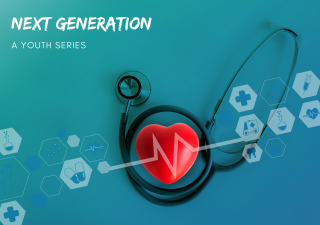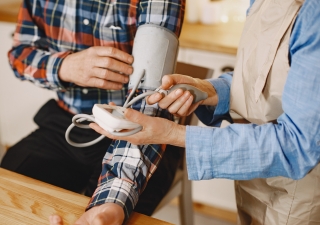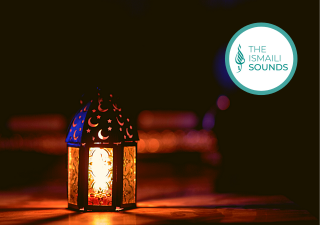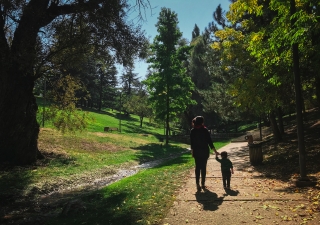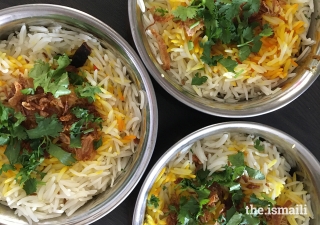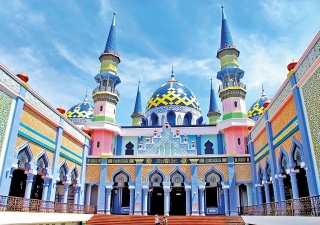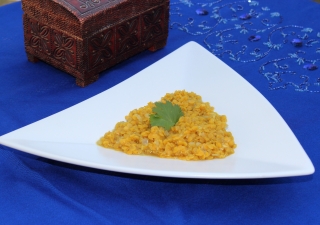News
Latest news and updates in India
With technology advancing and the world becoming increasingly globalised, the very nature of healthcare provision is changing. Young Ismailis around the world are at the forefront of this transition, pursuing diverse interests to help health workers around the world provide equitable, compassionate, and quality care.
In this interview with The Ismaili, Azmina Govindji discusses nutrition and healthy eating for better physical and mental health, and shares advice on how to adjust lifestyle choices to enjoy a better quality of life.
As countries worldwide have been dealing with the problems of the Covid-19 pandemic, it can be difficult to imagine anything worse than communicable or infectious diseases. However in reality, today we are facing the dual burden of communicable and non-communicable diseases (NCDs).
This week, The Ismaili is pleased to present the naat Mere Dil Mein Hai Yaad-e-Muhammad. Naats are songs or poems expressing devotion to the Prophet Muhammad (may peace be upon him and his family), and are commonly performed in some parts of the Muslim world during the month of Ramadan.
Humans are not only made to move — it is essential to our survival. The World Health Organization attributes over 3 million deaths each year to insufficient physical activity. The more we move, the more we boost the health of our bodies and minds, and the more alive we feel. Walking is one of the simplest ways to stay active.
Ismailis from different parts of the world have stepped up to support their communities and help each other maintain their health and overall wellbeing during the pandemic.
Are you curious to learn more about Islamic history, culture, and societies? The Institute of Ismaili Studies (IIS) publishes a wide range of books that explore some of the diverse manifestations of Islam. This guide, in celebration of World Book Day, suggests a few good places to start.
One year ago, The Ismaili launched an online TV channel, supported almost entirely by a team of dedicated volunteers, in an effort to fill the void that the pandemic left in the lives of the global Jamat.
Ever wonder why our parents tell us to drink milk with turmeric and saffron when we are fighting a cold? Or why so many diverse spices are added to our foods to add flavour and more? Our cultural foods — whether from Central Asia, South Asia, or the Middle East — have a beautiful history, but they can also be perceived as unhealthy. While some dishes do indeed cause concern, many are healthy or can be made healthy with some simple tweaks.
Grains are a basic food in households around the world and can be broken down into two categories: whole grains and refined grains. Unlike the refined grain, the whole grain kernel or the seed has all three parts intact: the bran, germ, and endosperm. Each one of these parts offer health promoting benefits. The bran, which is the outermost layer, contains the fibre, B vitamins, iron, copper, zinc, magnesium, and antioxidants. The germ is the centre most part of the seed and it is loaded with healthy fats, vitamin E, B vitamins, phytochemicals, and antioxidants. The endosperm is the innermost layer that holds the carbohydrates, protein, and small amounts of B vitamins.
If scrolling through social media sites such as LinkedIn makes you feel overwhelmed or unaccomplished in comparison to others — you're not alone.
Covid-19 has changed much of what we do and how we do it; from shaking hands and hugging our friends, to the very way we learn and work with our peers and colleagues. At the same time, Covid-19 has given rise to CONNECT, an initiative of Global Encounters and Aga Khan Youth and Sports Boards from around the world. Taking the form of a virtual camp, CONNECT is a way for Ismaili students to build bonds no matter where they may come from. CONNECT will be returning this summer from 19-25 July and 2-8 August.

